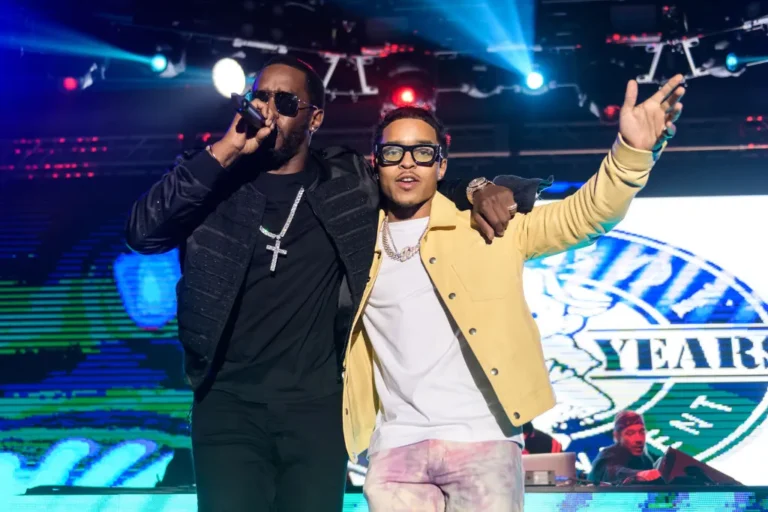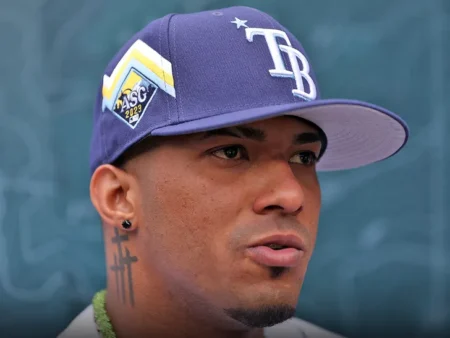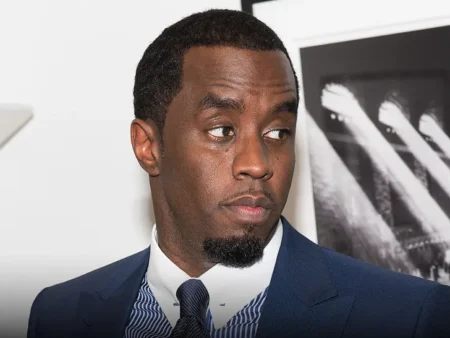Lil Rod’s high-profile lawsuit against music mogul Sean “Diddy” Combs has taken a dramatic shift as two major figures—Diddy’s son, Justin Combs, and actor Cuba Gooding Jr.—have officially been dropped from the case. The legal development marks a pivotal moment in a case that has captivated the entertainment world with its serious allegations of sex trafficking, sexual assault, and criminal conspiracy.
Originally filed earlier this year, the lawsuit thrust several well-known names into the spotlight, alleging disturbing conduct behind the scenes of the hip-hop industry. But now, a judge has dismissed the claims against Combs and Gooding Jr., narrowing the scope of the case while leaving the core accusations against Diddy intact.
Why Justin Combs and Cuba Gooding Jr. Were Removed from the Lawsuit
Justin Combs, the son of Diddy, was previously accused by Lil Rod of being involved in an alleged sex trafficking ring tied to his father’s music empire. Lil Rod also insinuated that either Diddy or his son might have played a role in a shooting that occurred at a recording studio. Similarly, Cuba Gooding Jr., already facing unrelated legal challenges over past sexual misconduct claims, was accused in this lawsuit of committing sexual assault aboard Diddy’s private yacht.
However, the court chose to dismiss the claims against both men—not based on the merits of the allegations, but due to procedural missteps. Lil Rod’s attorney, Tyrone Blackburn, reportedly failed to file essential legal documents by the court-mandated deadlines. In addition, the judge rejected Blackburn’s attempt to serve the defendants through newspaper advertisements—a method sometimes permitted when standard service options are exhausted but seen as a last resort.
The presiding judge found the justification for the delays unconvincing and ruled that the case could not proceed against Combs and Gooding Jr. at this time. Nevertheless, Lil Rod still retains the legal right to refile claims against either individual in the future, should the proper procedures be followed.
Diddy Wins Round in Court, But the Storm Isn’t Over
In another major update, Diddy scored a partial legal victory in the same case. His attorneys filed several motions aimed at dismantling the lawsuit’s claims piece by piece. In March, the court responded by dismissing several charges, including civil racketeering and breach of contract.
The judge ruled that Lil Rod failed to demonstrate a concrete link between Diddy’s actions and any violation of the RICO (Racketeer Influenced and Corrupt Organizations) Act. Furthermore, the claim that Lil Rod was not paid for his work on The Love Album: Off the Grid was dismissed as unrelated to criminal enterprise or organized racketeering.
These rulings trimmed down the lawsuit but didn’t eliminate it. The most serious accusations—those involving sex trafficking, sexual assault, and premises liability—are still active. These claims will now become the central focus of what could be a lengthy and high-stakes legal battle.
The Allegations Still Standing: Sex Trafficking and Premises Liability
Despite the recent dismissals, the case continues to revolve around deeply troubling accusations. Lil Rod alleges that he was exposed to a disturbing environment while working with Diddy, where he claims coercive and abusive behavior was rampant.
At the heart of the lawsuit are sex trafficking allegations—claims that Diddy and individuals connected to his inner circle participated in or facilitated sexual exploitation. Lil Rod also asserts that Diddy’s home and other locations, including the infamous recording studio, were knowingly used for unlawful acts, forming the basis for the premises liability claims.
While the court has yet to rule on the truth or validity of these allegations, their persistence in the case means Diddy remains under legal scrutiny.
Legal Missteps Could Haunt the Plaintiff’s Team
While the substance of the lawsuit has commanded headlines, the plaintiff’s legal strategy has raised eyebrows. Attorney Tyrone Blackburn’s failure to meet filing deadlines led to the loss of two major defendants, which critics argue weakens the case’s overall impact and public perception.
Judges typically offer some flexibility in procedural matters, especially in complex civil cases. However, repeated delays or poor justification can lead to permanent dismissals, as seen here. While Lil Rod may refile, the damage—at least temporarily—is done.
The situation highlights the importance of legal precision in high-profile cases, particularly when powerful figures and explosive claims are involved.
Public Fallout and Industry Reactions
The lawsuit has already caused ripple effects across the music and entertainment industry. Diddy, once a seemingly untouchable force in hip-hop and business, has faced mounting public criticism since the lawsuit’s initial filing. Multiple brands and collaborators have distanced themselves from him, and the cloud of legal uncertainty has impacted his standing in the industry.
At the same time, supporters argue that Diddy, like anyone else, deserves the presumption of innocence until proven otherwise. His legal team has aggressively challenged the lawsuit, labeling many of the claims as false, defamatory, and an attempt at extortion.
Justin Combs, who has mostly remained quiet during the legal chaos, can now breathe easier with his name temporarily cleared from the docket. Cuba Gooding Jr., who has battled previous allegations of sexual misconduct, also escapes this particular legal battle, though his broader legal troubles remain unresolved.
What’s Next for the Case Against Diddy?
With the lawsuit now narrowed, the road ahead appears more focused but no less intense. Legal analysts expect pretrial motions, depositions, and possibly even testimony to unfold over the coming months.
If the remaining allegations proceed to court, Lil Rod will need to present compelling evidence of the claims he has made. That includes not only personal testimony but also documentation, witnesses, and other forms of proof that could back up his accusations.
Meanwhile, Diddy’s legal team will likely continue working to dismantle the remaining claims, aiming to have the entire case dismissed or severely weakened before it ever reaches a jury.
Final Thoughts: A Lawsuit Far From Over
While the dismissal of Justin Combs and Cuba Gooding Jr. marks a significant development, the lawsuit against Diddy remains a live wire. The sex trafficking and assault allegations that persist keep the legal and public pressure firmly on the music mogul’s shoulders.
Whether Lil Rod’s case will ultimately succeed is still unknown, but one thing is clear: the legal spotlight on Diddy is far from fading. The outcome of this case could have lasting implications—not only for those involved but also for how the entertainment industry handles accountability at its highest levels.








